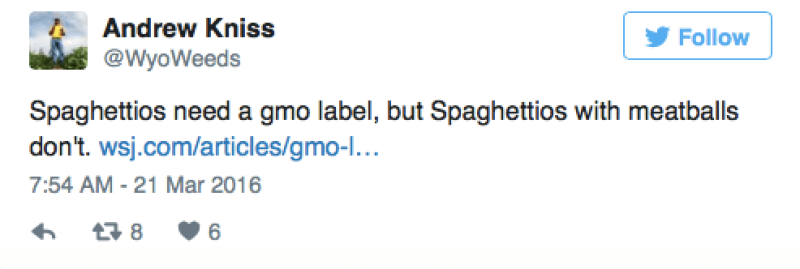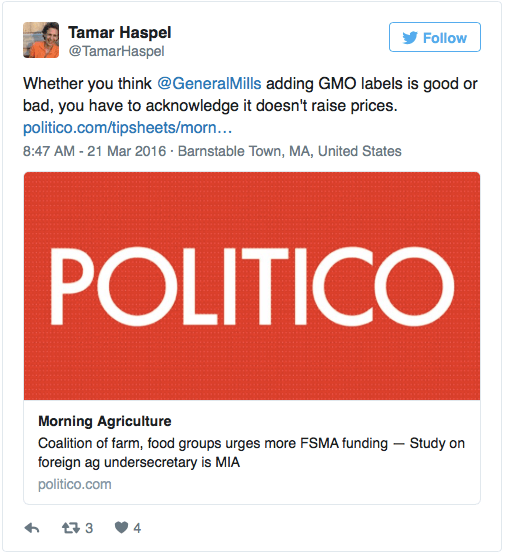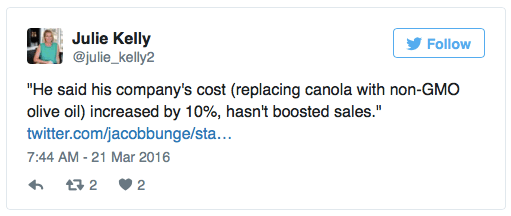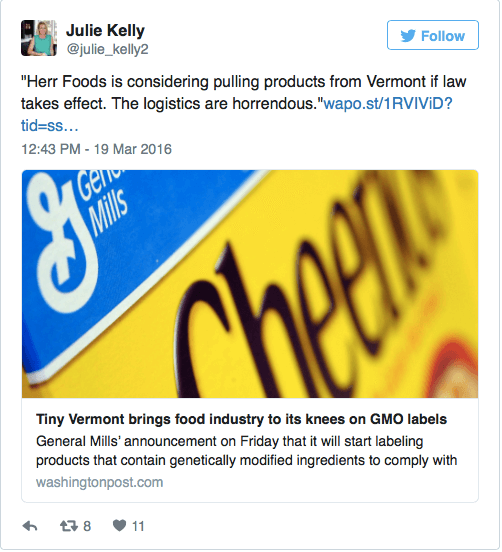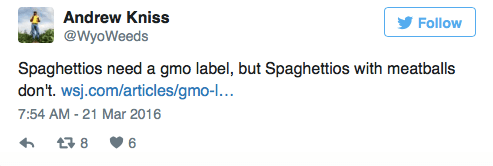The GLP aggregated and excerpted this blog/article to reflect the diversity of news, opinion and analysis.
Campbell’s . . . called it “expensive” to comply with Vermont’s law. Maybe they won’t pass it on to consumers directly. They are a large company, and maybe they can cut corners elsewhere to make up the costs. Maybe the number or quality of ingredients will change. We’ll probably never know.
Maybe it doesn’t raise prices immediately. “General Mills has spent “millions of dollars [to change labels], which we are not passing on to the consumer,” a company spokeswoman told POLITICO Pro.” But if you think “millions of dollars” actually vanish in the system, you have a very naive grasp of the realities of running a business. This comes from somewhere. And I’m sure it’s not executive’s bonuses.
. . . .
Big Food can shuffle their numbers around. What about small producers and smaller vendors?
Ok, you get a label. How informative is it?
Is the food more nutritious? No. In fact, we know that swapping out to get Non-GMO Project certification can reduce nutrition.
Does it taste better? No. Kraft’s recent reformulation went unnoticed.
Will it improve consumer choice? Herr Foods, we saw above, is considering pulling out of Vermont. In the Wall St. Journal, “Blue Valley’s Ms. Sawyer said that in addition to cost, “sourcing new ingredients is so time-consuming.” Rather than add GMO labels or search for alternative ingredients, “I will probably just discontinue those flavors.”
More costs, fewer choices, no nutritional benefits. Inconsistent labels with many exemptions. More red tape, more lawyers. I have yet to hear of a single valid benefit to consumers on this.
Read full, original post: Anti-GMO chickens are coming home to roost.

